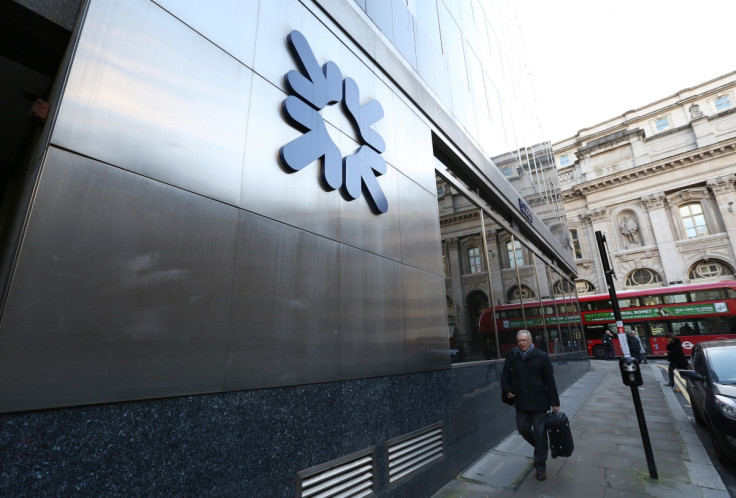RBS Scraps Controversial GRG Unit Criticised in Tomlinson Report

The Royal Bank of Scotland is scrapping the Global Restructuring Group (GRG), the controversial unit accused of engineering businesses into default while profiting from their struggles, says sources.
Sources told IBTimes UK that GRG "no longer exists" and was disbanded with immediate effect, while two of the group's biggest bosses Derek Sach and Aubrey Adams will leave the bank.
However, another top GRG executive, Laura Barlow, will remain at the bank and take on a new role elsewhere.
RBS declined to comment.
Last year, former government advisor Lawrence Tomlinson claimed the 81% government-owned lender profited from struggling businesses, which were pushed into default after being moved into the controversial unit, GRG.
Tomlinson claimed that by moving businesses into GRG, this can create more revenue for the bank through higher fees and margins.
It can also result in the purchase of devalued assets by its property division, West Register, he added.
Tomlinson told the committee that he was ready to hand the dossier over to the Financial Conduct Authority (FCA), in order for the watchdog to investigate, as the evidence he has collected revealed "morally wrong" practices.
After the release of Tomlinson's report, RBS drafted in heavyweight lawyers to review the treatment of small-to-medium sized enterprises (SME) and eventually released a review which claims the bank was cleared of any allegations that it tried to defraud some of its customers.
The bank said the review, carried out by law firm Clifford Chance, found that after interviewing 138 customers and reviewing 130 files, there "was no evidence to support this damaging and serious allegation".
There is no confirmation that RBS disbanded GRG in response to the negative publicity the unit has faced and sources say it was scrapped "because of an improvement in the economy and there was no longer a need for a big unit to deal with troubled businesses."
However, the move may not surprise some people who have watched RBS closely over the years.
Last month, author Ian Fraser, who has a history of arraigning RBS in books articles and documentaries, said RBS was guilty of "acting like a rogue institution" towards its struggling business customers.
Speaking to IBTimes TV about his latest book, Shredded: Inside RBS – The Bank that Broke Britain, Fraser revealed his concerns over how RBS chose to denounce the now-infamous Tomlinson Report, which claimed the bank engineered businesses into default while profiting from their struggles.
In the same month, the chairman of an influential panel of lawmakers slammed RBS for being "wilfully obtuse" and delivering a "belated U-turn" when it came to giving evidence over whether it made money by putting failing businesses in a specific unit.
After receiving a letter from RBS Deputy Chief Executive Chris Sullivan and its Global Restructuring Group (GRG) boss Derek Sach, which contradicted the evidence they gave to the Treasury Select Committee in June, Andrew Tyrie said he would write to RBS Chairman Philip Hampton on the matter and the committee would report on it after the summer.
"It now appears that RBS has been wilfully obtuse with the committee. If this is how RBS deals with a parliamentary committee, how much can customers and regulators rely on it to be straightforward with them?" said Tyrie.
© Copyright IBTimes 2025. All rights reserved.






















